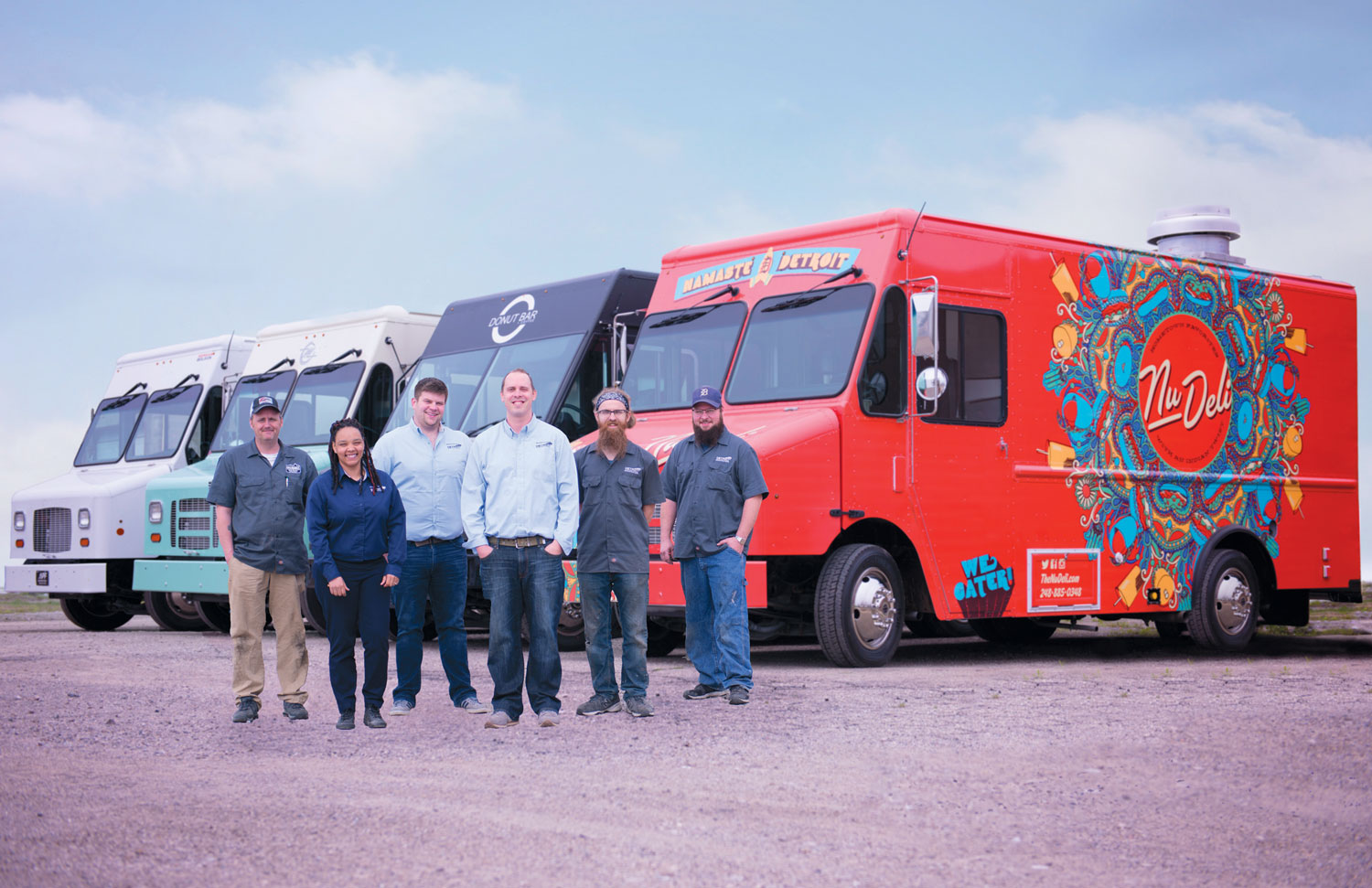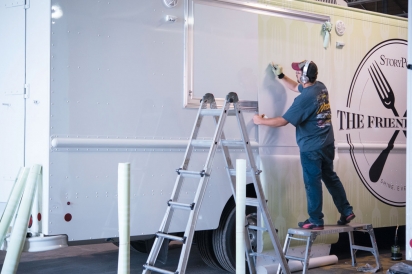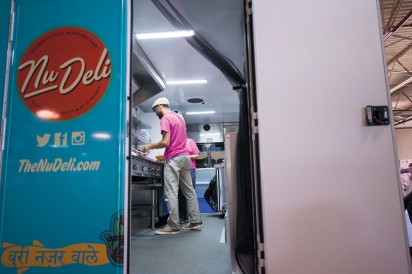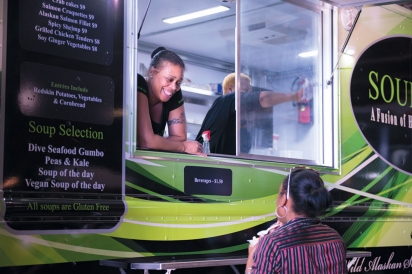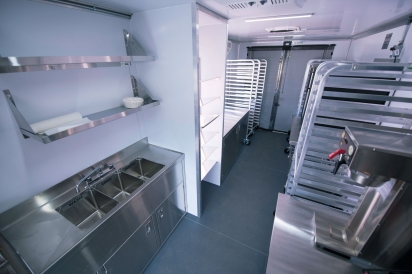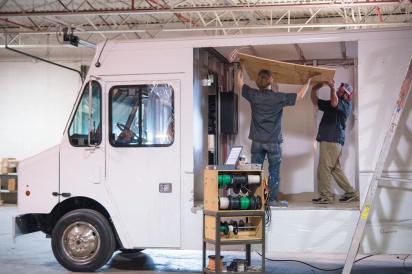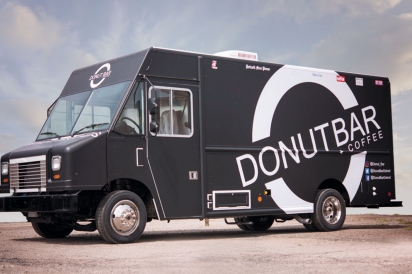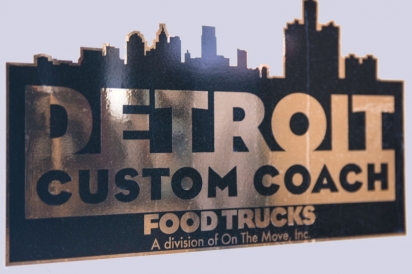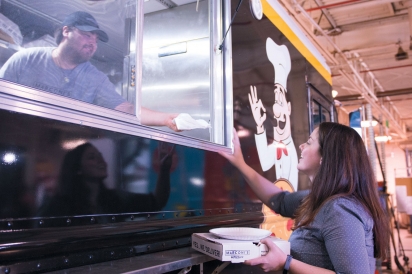Detroit Custom Coach Rides the Mobile-Meal Trend
Rush Hour for Food Trucks
These days, food trucks have become commonplace. In recent years, the number of food trucks roaming the streets with tasty eats has exploded across Metro Detroit, with developments like Mark’s Carts in Ann Arbor, the proposed “Detroit Fleat” in Ferndale, and “Food Truck Friday”-type events popping up at parks, farmers’ markets and parking lots all over the region. But where do all of those food trucks come from?
Many are built right here in Metro Detroit, in an industrial section of Oak Park just north of 8 Mile Road. Detroit Custom Coach LLC is the brainchild of founder Chris Ramos, who converted his party bus rental and customization business into a full-fledged food truck shop back in 2013, just as the food truck trend was getting under way.
The transition from customizing party buses to an exclusive focus on food trucks wasn’t intentional; it just sort of happened, Ramos recalls. “One day in our shop, my lead builder was, like, ‘Look around.’ And we took a look around and it was all food trucks in our shop. And so we realized we should be doing food trucks, so we really started focusing on them.”
Growth in the food truck industry shows no signs of slowing, according to Ramos. He says the concept has undergone a complete transformation since the early days. What started as a low-budget way for small-scale chefs to test the waters has morphed into an entirely distinct, value-added dimension of the restaurant, food service and hospitality industries.
“It was the mom-and-pops who really started the food truck industry,” says Ramos. “But what we’re seeing now is more restaurants, restaurant groups and even those outside of the typical food industry getting into food trucks, knowing that it’s a great marketing vehicle.”
In the lobby of his factory, Ramos has a book filled with photos of the various food trucks he’s built across the country, and many of them are surprising. Take for example, the food truck for a retirement community, Senior Village.
“They have food service, and so they are adding food trucks as a marketing tool,” says Ramos. “They’ll go to parades and festivals and have their brand there and serve food, because their target market is 45- [to] 50-year-olds that have parents that need to go into senior living. But then they’ll also use that truck on their properties to serve to the residents.”
Ramos has built trucks for many national clients, including the likes of Velveeta, Church’s Chicken, Big Boy, the Atlanta Public School System and Virginia Tech. But local clients still make up a substantial proportion of the business. For example, he’s currently building a truck for Southfield-based Donut Bar, which features a custom-built glass display case with lights on the side of the truck. “That display is totally customized for them. It doesn’t exist anywhere else on the planet.” says Ramos.
Another truck, for Metro Detroit–based Bigalora, features a 6,000-pound wood-fired pizza oven, which required cutting off the side of the truck and using a forklift to install.
Many of the trucks are sourced from Sturgis-based Morgan Olson, a manufacturer of walk-in delivery trucks built on a Ford chassis. Ramos refers to these as “blanks”—a wide-open canvas that he and his team can customize to meet the needs of any type of food business.
Last April, Ramos sold Detroit Custom Coach to Texas-based On the Move Inc. The sale gave Ramos the support to grow the business, and he has stayed on as operations director of the Detroit facility. “It’s a great way to have all the working capital that we need, and none of the stress,” says Ramos. “Well, maybe some of the stress.”
These days, Ramos can spend more energy on sales, marketing and operations. He notes that the sales cycle is very long, because the investment is not insignificant. “It’s a $150,000 vehicle, the price of an average home in the United States,” he says. “So, it’s a big expense.”
Building a kitchen in a used truck is an option, says Ramos, but not one he typically recommends. “I always tell the clients, it’s really hard to justify building you a $60 000 to $80,000 kitchen on a $3,000 truck that the engine may go on, or the floor may rust out,” he says. “And then, you know, it’s not like you can just pick all this equipment up and move it over to the next one.”
Because business is booming, Ramos is fast outgrowing his current space. He’s thinking about a move to a larger facility and new hires, including carpentry and sales staff, in the near term. And he’s excited by the evolution he sees in the industry. It’s come a long way from the early days, he says, where brick-and-mortar restaurants were suspicious of food trucks. Instead, he sees them embracing the trend.
“Restaurants are starting to find that it’s a really great way to expand their brand and to increase their bottom line. It’s a great marketing tool,” says Ramos. “They’re handing out food and then they’re putting a ticket on it that says ‘come to my restaurant for a free milkshake,’ and they’re getting residual income from that. Restaurants are realizing that food trucks are not competition. Build yourself one and you have a billboard that literally pays you back.”


